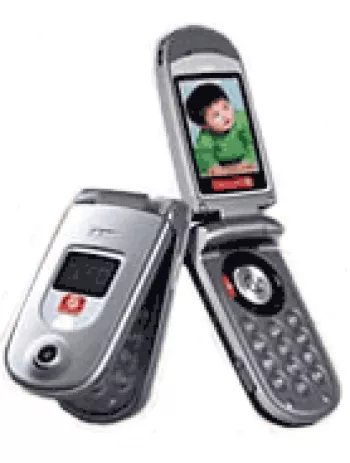
Introduction to the NEC e1108
The NEC e1108 is a mobile device that hails from an era when feature phones were the cornerstone of mobile communication. Announced in 2006, this device has been discontinued, but it remains a noteworthy example of early 2000s mobile technology. The NEC e1108 was designed to fulfill basic communication needs with additional features that were considered quite advanced for its time. Let's delve into the specifics of this device to understand its capabilities and the technology it represented during its heyday.
Design and Build Quality
The NEC e1108 features a compact design with dimensions of 103 x 44 x 18.5 mm, making it light and portable with a weight of just 84 grams. Its body is crafted to ensure ease of use and robustness, catering to the needs of users who preferred a device that fits comfortably in the hand and pocket. The phone employs a Mini-SIM card slot and was available in two distinct colors: Fluorescent Green and Metallic Orange, reflecting the vibrant color trends of the mid-2000s.
Display Characteristics
Equipped with a 1.8-inch display, the NEC e1108 utilized a TFT screen capable of displaying 65K colors. This screen, with a resolution of 128 x 160 pixels and a pixel density of approximately 114 ppi, offered clear visuals for its time. Covering a screen-to-body ratio of around 22.5%, the display was sufficiently large for messaging and basic navigation.
Camera Capabilities
The device comes with a single rear camera of 1.3 MP, a common specification in feature phones of that era. This camera provided the basic functionality to capture photos and videos, which was a cherished feature for users transitioning from non-camera phones. Despite its modest resolution by today's standards, it represented a step towards integrating multimedia capabilities into mobile devices.
Storage and Memory
The NEC e1108 had an internal storage of 28MB, which could be expanded using a microSD card in its dedicated slot. This feature was quite useful for users who wanted to store additional media files or applications. The phone also supported a phonebook and maintained records of 20 dialed, 20 received, and 20 missed calls, which was typical for managing communications effectively on the go.
Network and Connectivity
Running on GSM technology, the NEC e1108 supported 2G bands including GSM 900, 1800, and 1900. It provided GPRS with Class 10 for data transfer but lacked EDGE capability. The phone did not include modern connectivity options such as Bluetooth, WLAN, positioning services, or radio, which is reflective of the limited connectivity landscape of its time. USB connectivity was possible through a proprietary interface, enabling basic file transfers and charging.
Battery Life
Powered by a removable Li-Ion battery with a capacity of 1530mAh, the NEC e1108 could offer standby time of up to 100 hours and talk time of up to 2 hours and 20 minutes. This battery performance was adequate for a device intended for essential communication tasks, though it required regular charging for continuous use.
Sound and Audio Features
For audio, the NEC e1108 featured a loudspeaker and supported various alert types including vibration and downloadable polyphonic and MP3 ringtones. It did not include a 3.5mm jack, which limited headphone connectivity, yet it sufficed for users primarily interested in voice calls and simple ringtone alerts.
Additional Features and Entertainment
The phone supported basic messaging capabilities, including SMS and MMS, along with a WAP 2.0/xHTML browser for browsing simpler web pages of the era. It offered a few embedded games for entertainment and supported Java MIDP 2.0, allowing users to download and run basic Java applications. These features enhanced the device's functionality beyond just communication.
Conclusion
The NEC e1108 stands as a testament to the mobile phone technology of the mid-2000s, reflecting an era where feature phones were standard and smartphones had yet to dominate the market. With its basic yet essential functions, it served a user base that prioritized straightforward communication, combined with the novelty of having a built-in camera and expandable storage. While technology has since advanced dramatically, the NEC e1108 remains an interesting relic from a pivotal period in mobile phone history.
Key Features of NEC e1108
- Supports GSM technology with 2G bands (GSM 900 / 1800 / 1900)
- Lightweight design, weighing only 84 g
- Compact dimensions: 103 x 44 x 18.5 mm
- 1.8-inch TFT display with 65K colors
- Expandable storage via microSD card slot
- 1.3 MP main camera with video capability
- Support for SMS and MMS messaging
- Polyphonic and MP3 ringtone compatibility
- Removable Li-Ion battery with up to 100 hours standby time
- Available in unique colors: Fluorescent Green and Metallic Orange
NEC e1108 Key Disadvantages
- Legacy technology with GSM support only.
- Lacks EDGE capability for faster internet speeds.
- Discontinued and no longer supported since 2006.
- Low screen-to-body ratio with a 1.8-inch display.
- Limited internal storage of 28MB.
- No 3.5mm headphone jack for audio.
- Absence of Bluetooth and WLAN for wireless connectivity.
- No GPS support for positioning services.
- Proprietary USB instead of a standard USB connection.
- Basic camera functionality with only a 1.3 MP main camera.
- No front-facing (selfie) camera.
- Limited battery life with up to 100 hours standby and only 2 hours 20 minutes talk time.
View Also
More Phones
All Rights Reserved +14266 Phones © Mobilawy 2025

























